Understanding Tor: What You Need to Know
The Tor network, also known as The Onion Router, is a free and open-source software that allows users to browse the internet anonymously. It operates by routing internet traffic through a series of volunteer-run servers or “nodes” around the world, making it difficult to trace back to the original user.
If you’re considering using Tor for enhanced privacy and security, it’s crucial to understand how it works and its limitations. Tor is not a magic bullet and does have some risks and limitations. While it provides anonymity and can protect against surveillance and censorship, it may not be foolproof against all threats.
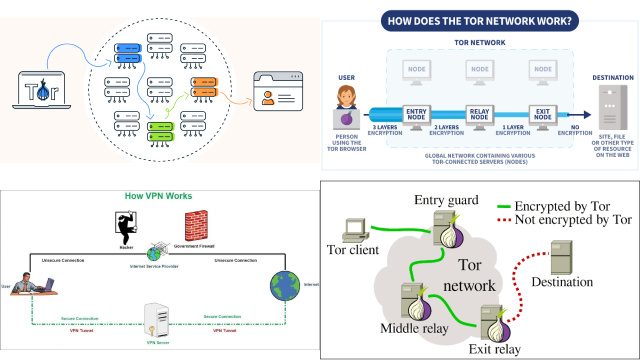
It’s also important to note that not all content on the Tor network is safe or legal, and accessing certain websites or engaging in illegal activities using Tor may have severe consequences.
To use Tor safely, it’s essential to follow best practices, such as keeping your Tor Browser up-to-date, being cautious about the websites you visit, and avoiding revealing your identity or personal information.
In conclusion, understanding how Tor works, its benefits, risks, and limitations is essential to ensure safe and responsible use of this powerful privacy tool in 2024 and beyond.
Debunking Common Myths About Tor
Tor, or The Onion Router, is often shrouded in misconceptions and myths, leading to confusion and misunderstandings about its functionality and safety. As a powerful privacy tool, it’s important to separate fact from fiction when it comes to Tor.
One common myth about Tor is that it is entirely illegal to use. However, Tor itself is a legal software, and using it is not inherently illegal. While it is true that Tor can provide anonymity, it does not grant immunity for engaging in illegal activities.
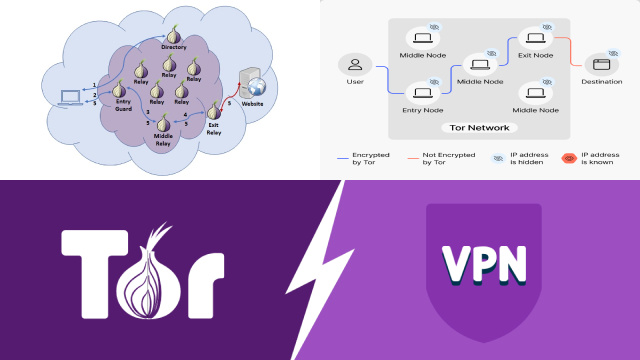
Another myth is that Tor is completely secure and untraceable. While Tor can provide a high level of anonymity, it’s not foolproof, and there are potential vulnerabilities that could be exploited by determined adversaries.
Finally, some believe that using Tor automatically makes you a target for surveillance. However, not all Tor users are subject to surveillance, and using Tor for privacy-enhancing purposes is a legitimate use.
In conclusion, it’s crucial to debunk these common myths and understand the facts about Tor to make informed decisions about its use. Like any tool, Tor has its limitations and should be used responsibly and legally for enhanced privacy and security online.
Benefits and Risks of Using Tor
As an anonymous communication network, Tor offers both benefits and risks for its users. Understanding these can help users make informed decisions about whether to use Tor for their online activities.
Benefits:
- Privacy: Tor can help protect your online privacy by routing your internet traffic through multiple relays, making it difficult for anyone, including your ISP or government, to monitor your online activities.
- Anonymity: Tor can help you stay anonymous online by masking your IP address, making it harder for websites and online services to track your location and online behavior.
- Access to blocked content: Tor can provide access to blocked websites and content, especially in countries with strict internet censorship, allowing users to bypass restrictions and access information freely.
Risks:
- Malicious activity: Tor can be used for illegal activities, such as cybercrime, hacking, and trafficking, which can result in legal consequences.
- Malware and scams: Tor can expose users to potential risks of downloading malicious software or falling victim to scams, as not all websites on Tor are safe.
- Slow browsing speeds: Tor traffic is routed through multiple relays, which can result in slower browsing speeds compared to regular internet browsing.
In conclusion, Tor can offer benefits in terms of privacy, anonymity, and access to blocked content, but it also comes with risks related to malicious activity, malware, scams, and slower browsing speeds. Users should exercise caution and use Tor responsibly for legitimate purposes.
Best Practices for Safely Using the Tor Browser
If you’re using the Tor browser to protect your online privacy and anonymity, it’s important to follow best practices to ensure a safe and secure experience.
- Keep your Tor browser up to date: Regularly check for updates and install them promptly to ensure you have the latest security patches and bug fixes.
- Use HTTPS whenever possible: HTTPS encrypts your web traffic and provides an additional layer of security. Always look for HTTPS versions of websites and use them whenever available.
- Avoid downloading files: Downloading files over Tor can expose you to potential risks of malware or other security threats. Avoid downloading files unless absolutely necessary and only from trusted sources.
- Disable JavaScript: Disabling JavaScript in your Tor browser can enhance your privacy and security, as JavaScript can potentially reveal your real IP address or other identifying information.
- Be cautious with website interactions: Avoid revealing personal information, logging into accounts, or engaging in other activities that could compromise your privacy or security while using Tor.
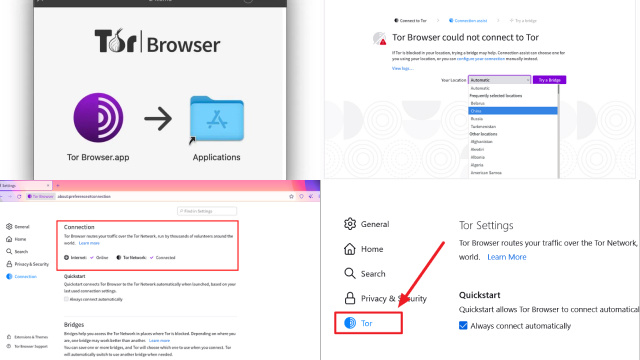
By following these best practices, you can help ensure a safer experience while using the Tor browser and protect your privacy and anonymity online.
Protecting Your Privacy: Tips for Tor Users
As a Tor user, safeguarding your privacy is essential. Here are some valuable tips to protect your privacy while using Tor:
- Keep your Tor browser updated: Regularly check for updates and install them promptly to ensure you have the latest security features and patches.
- Use HTTPS sites: Look for HTTPS versions of websites, as they provide encryption for your web traffic and add an extra layer of security.
- Exercise caution with downloads: Be cautious when downloading files over Tor, as they may contain malware or other security risks. Download only from trusted sources.
- Disable JavaScript: Disabling JavaScript in your Tor browser can enhance your privacy, as JavaScript can potentially reveal your real IP address or other identifying information.
- Be mindful of website interactions: Avoid sharing personal information, logging into accounts, or engaging in activities that could compromise your privacy while using Tor.
By following these tips, you can protect your privacy while using the Tor browser and enjoy a more secure online experience.
Tor Security Measures: What You Can Do to Stay Safe
If you’re using Tor to protect your online privacy, it’s important to implement additional security measures to ensure you stay safe. Here are some practical tips to enhance your Tor security:
- Use a reliable VPN: Pairing Tor with a trustworthy virtual private network (VPN) can add an extra layer of encryption and help protect your traffic from being intercepted or monitored.
- Enable Tor’s built-in security features: Tor comes with built-in security features, such as NoScript, which allows you to disable scripts and prevent potential security vulnerabilities.
- Be cautious with plugins: Avoid using plugins or add-ons in your Tor browser, as they can compromise your privacy and security.
- Regularly check for updates: Keep your Tor browser, VPN software, and operating system up to date to ensure you have the latest security patches.
- Avoid revealing personal information: Be cautious about sharing personal information while using Tor, as it can potentially compromise your anonymity.
By implementing these security measures, you can enhance your safety while using Tor and enjoy a more secure browsing experience.
Hidden Services on Tor: Exploring the Dark Web Safely
The Tor network, renowned for its privacy and anonymity features, is most often associated with the Dark Web, a part of the internet that is not indexed by traditional search engines. While the Dark Web is often depicted as a mysterious and illicit space, it is not inherently nefarious.
In fact, it serves various legitimate purposes, such as protecting free speech in repressive regimes and facilitating secure communications.
Exploring the Dark Web can be done safely and ethically by following these guidelines:
- Use a Secure Connection: Always connect to the Tor network through a secure and trusted browser like the Tor Browser Bundle.
- Verify Onion Links: Be cautious when clicking on links. Verify that you are accessing a legitimate .onion website to avoid scams.
- Maintain Anonymity: Don’t share personal information, and use pseudonyms. Remember that true anonymity is never guaranteed.
- Practice Caution: Be vigilant when exploring the Dark Web. Avoid illegal activities, and do not click on suspicious links.
- Secure Your Device: Keep your operating system and security software up-to-date, and consider using a dedicated, isolated device for Dark Web activities.
- Educate Yourself: Understand the risks and consequences of engaging with illegal content, and be aware of the laws in your jurisdiction.
- Contribute Ethically: The Dark Web is also home to valuable resources, like forums on privacy and security. Contribute positively to these communities.
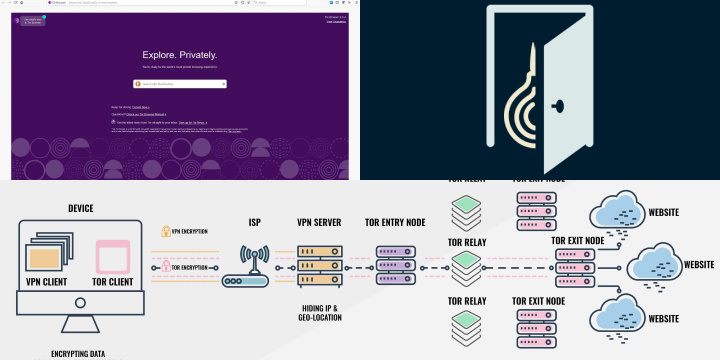
While the Dark Web has its share of illicit activities, it’s essential to remember that it also harbors legitimate and ethical content. By following responsible and safe browsing practices, users can navigate the Dark Web while protecting their privacy and avoiding potential dangers.
As the importance of online privacy and security continues to gain attention, navigating the Tor network safely in 2024 is crucial. By following best practices, such as using a reliable VPN, enabling Tor’s built-in security features, being cautious with plugins, regularly updating software, and avoiding revealing personal information, you can enhance your safety while using Tor.
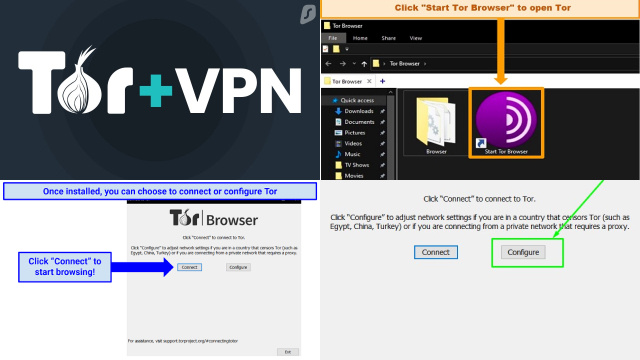
Protecting your privacy and taking necessary security measures are essential in today’s digital landscape. By implementing these measures, you can confidently use the Tor network for anonymous and secure browsing. Stay vigilant, stay informed, and stay safe while navigating the Tor network in 2024.